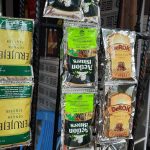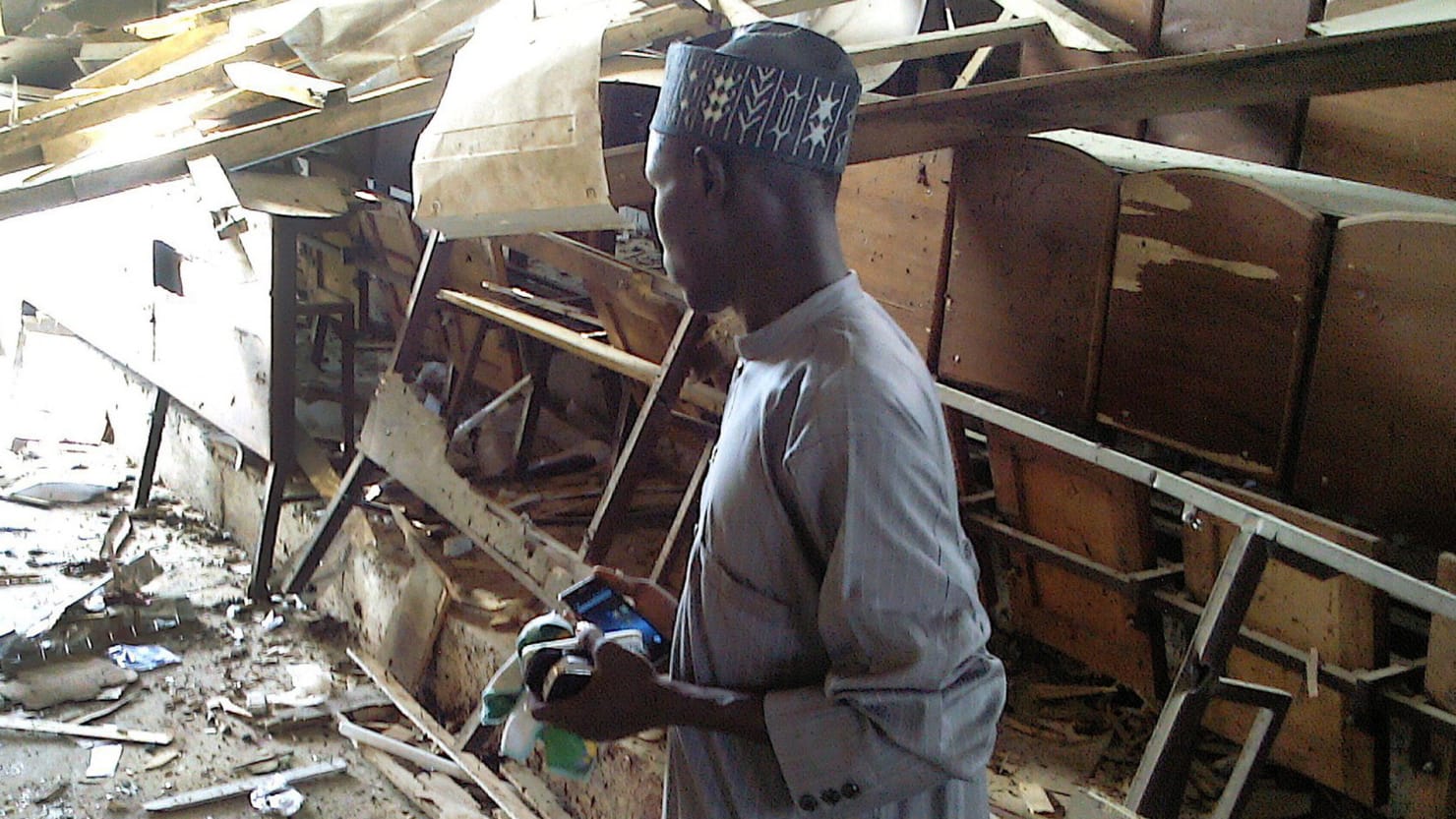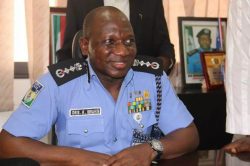By Philip Obaji Jnr
I was born on Aug. 8, 1985, in the southern Nigeria town of Ogoja, the same year that the Maitatsine uprising in far away northern Nigeria came to an end. It had claimed some 5,000 lives, but as I grew up I had never heard of the crisis that started in December 1980 with attacks on security forces and non-Muslims.
Then, when the Boko Haram insurgency began in 2009, the media started reporting that Nigeria had faced something similar in the past.
Growing up as a kid who loved to read the newspapers, I had never came across a single story that referenced the carnage at Maitatsine, and my teachers in secondary school never said a word about it during history classes. Successive military governments did everything possible to avoid talking about that war because they felt publicity could cause sympathizers to begin another uprising.
But attempts to do away with that history didn’t stop another radical group from creating a similar ideology at the start of the 21st century, and when the Boko Haram violence began in the northeast in 2009, I was old enough to understand why and how it started.
In 2002, the Muslim cleric Mohammed Yusuf founded Boko Haram in Maiduguri aiming to establish a fully Islamic state in Nigeria that will lead to the elimination of western education and implementation of sharia criminal courts across the country. At first it did not seek to overthrow the government with violence, but a July 2009 clash with security forces after its members refused to follow a law that required motorbike users to wear helmets, led to close to a thousand deaths and encouraged the group to go wild.
A member of Boko Haram had died, and other members were on the way to bury him in a cemetery when they were stopped by policemen who demanded to know why they were not wearing helmets. An argument erupted, which led to firing of shots by the police. Several Boko Haram members were injured in the process.
The group responded by carrying out an armed attack on police stations and government buildings in Maiduguri. The violence then spread across five states in Nigeria’s northern region, and lasted several days before the military put the situation under control.
Yusuf and a number of his followers were arrested during the clashes and reportedly executed by the police. Soon after, the sect’s fighters regrouped under Yusuf’s deputy, Abubakar Shekau, and stepped up their violence.
A year after the insurgency began, thousands of people in the northeast were made homeless. Many fled to other regions in Nigeria, including to Calabar in the south-central part of the country, where I remained after conclusion of my bachelor’s degree program at the federal university and was working as a volunteer for a local organization that was assisting girls in low-income neighborhoods who did not go to school to develop manual skills. They came with heartbreaking stories of relatives captured and slaughtered by jihadists, tales of homes burned down with children inside, and episodes of rape and torture by militants.
I documented these accounts and posted them on Facebook. Some posts went viral, and the tales of the survivors were used by local newspapers. While telling these stories, I formed a movement called the 1 GAME Campaign to pressure the government to create effective programs and policies that would help children in the northeast achieve Universal Basic Education (UBE) despite the crisis.
Armed with Kalashnikovs, the men asked neighbors for the whereabouts of “the boy who always wrote about [Boko Haram] on Facebook.” One of them remembered the phrase “1 GAME,” and made reference to it, as he tried to explain who I was to the people he met in front of the house. While the conversation went on, I sneaked out of the compound through the back and ran straight to a bus station where I got a ride to Damaturu in neighboring Yobe state, from where I found my way back to Calabar. It was a frightening experience, and I resolved never to return to the northeast until Boko Haram was defeated. But as we waited for news of the terror group’s destruction, the reality was completely the opposite. The group was expanding and gaining more territories. More children were made orphans and homeless, and some were transported to southern cities like Calabar by slave owners who found work for them as gatemen and housekeepers, and received pay on their behalf.
Seeing how slave masters exploited children, and how the government further turned its back on kids in the northeast, I was prepared to take the risk of going back to the region and to listen to children tell their own stories of how they managed to survive the catastrophe in the area, and try to give them a voice going forward. Frankly, I was scared. But each time fear was about to overcome me, I would think of something Martin Luther King Jr. said: “Our lives begin to end the day we become silent about the things that matter.”
In September 2014, exactly a year after my first visit, I returned to Maiduguri. The kidnap of the Chibok girls stole the headlines that year, but beneath the news was a huge humanitarian situation far worse than when I made my first trip. Thousands more had been driven from their homes, and the number of Internally Displaced Persons (IDP) camps had swelled. I wanted to go around to all the camps in the city, but I had little money to cover accommodation. So, I would carry out interviews until late in the evening and then spend the night in camp in the same clothes, and with my shoes on, so I could escape more easily in case of danger.
One night, in a makeshift IDP camp, a man who didn’t know who I was, saw me lying on the floor with my chest and arms covering my small bag containing my toiletries. He then screamed “Thief, thief, thief!” and alerted camp security. Two men rushed me. One held me by my shirt, the other by the beltline of my trousers. They thought the bag I placed under me was stolen, as it resembled that of one of the boys in the camp. They soon found out they were mistaken, but not until after I had been slapped around by the men who rushed me.
The stories that followed my 2014 trip to the northeast were either posted on my Facebook timeline or published on the website of A World At School, founded by Britain’s Sarah Brown, who had just appointed me a Global Youth Ambassador. Luckily, one of the articles, “How the fight against Boko Haram is turning thousands of children into soldiers and spies,” caught the attention of editors at The Daily Beast, and, in March 2015, I became a contributor to the website.
Teaming up with The Daily Beast came with an added responsibility. When I wrote for my Facebook timeline, I focused only on sharing the stories that children told. Now I needed to hear from other actors—the government, the military, and even the militants. I remember speaking to a former Boko Haram fighter and, after the interview, he said to me: “If I ever go back to Boko Haram, I’ll first come after you.” It may have sounded like a joke, but it says a lot about how jihadists view journalists digging into their activities.
But something else Dr. King said inspired me: “Every step toward the goal of justice requires sacrifice, suffering, and struggle; the tireless exertions and passionate concern of dedicated individuals.”
Last year, The Daily Beast published some revealing stories about human trafficking. A year-long investigation showed the way children once enslaved by Boko Haram are approached by people smugglers and sex traffickers, and taken on a long and dangerous journey toward Europe, with girls having to visit traditional ritual shrines for oath-taking rituals that bind them to their benefactors.
These stories led the National Agency for the Prohibition of Trafficking in Persons (NAPTIP) in Nigeria to increase its surveillance in IDP camps. NAPTIP’s Maiduguri zone office, which covers the northeast, confirmed to The Daily Beast that, in the aftermath of the story, “How Boko Haram’s Sex Slaves Wind Up as Sex Workers in Europe,” it is now “sensitizing IDPs about trafficking and giving them our numbers so that they can report any person who comes to the camp for the purpose of trafficking people either to Europe or other parts of the country.”
The stories have sometimes had a direct impact.
Abdul Ahmed, a member of the vigilante group, Civilian Joint Task Force (CJTF), in northeastern Nigeria hadn’t heard anything about sex trafficking in IDP camps until he read the story, “When the Way Out of Boko Haram Is an Ancient Slave Route,” published last December. In conducting his own investigation he decided to interview children in IDP camps around Maiduguri and, then, came across two friends who had, in January 2017, been approached by an agent for a trafficking ring offering them jobs as hairdressers in Italy.
This January, after a year wait, the girls prepared to depart for Benin City to meet the leadership of the ring. Ahmed told them about the story he read last month, but they paid little attention.
Ahmed reached me through Facebook, telling me the girls had ignored him and were planning on their own to travel to Benin City to meet the traffickers. I called up the piece again along with another story, “Blood on Their Breasts, a Curse on Their Heads: The Juju Ritual Torturing Italy’s Sex Workers,” published last June, and moved both articles to a single word document the vigilante could print easily and give to the girls to read. Both girls had studied up to the level of senior secondary school before Boko Haram militants seized them in the northeastern town of Gwoza. My guess was that they wouldn’t have any problems with reading and understanding the stories.
The girls were having breakfast on the eve of their intended departure when Ahmed gave them the articles. “If you want I could call the writer to speak with you,” he told them.
The girls were terrified. Without arguing any further, they jettisoned their plans to travel to Benin City and unpacked their bags.
Shortly afterward, the female agent who arranged for the girls to leave for Benin City asked why they hadn’t yet left. One of the girls brought out the articles, showed them to the agent and said: “This was why.”
The agent looked at the paper, and half way through reading the first article, she asked the girls how they came across the story. The girls said they got it from a journalist. The visibly troubled woman said to them: “Please don’t tell anyone we met today. Go back home. I’ll get across to you.”
They haven’t seen or heard from the woman since then.
























Leave a comment